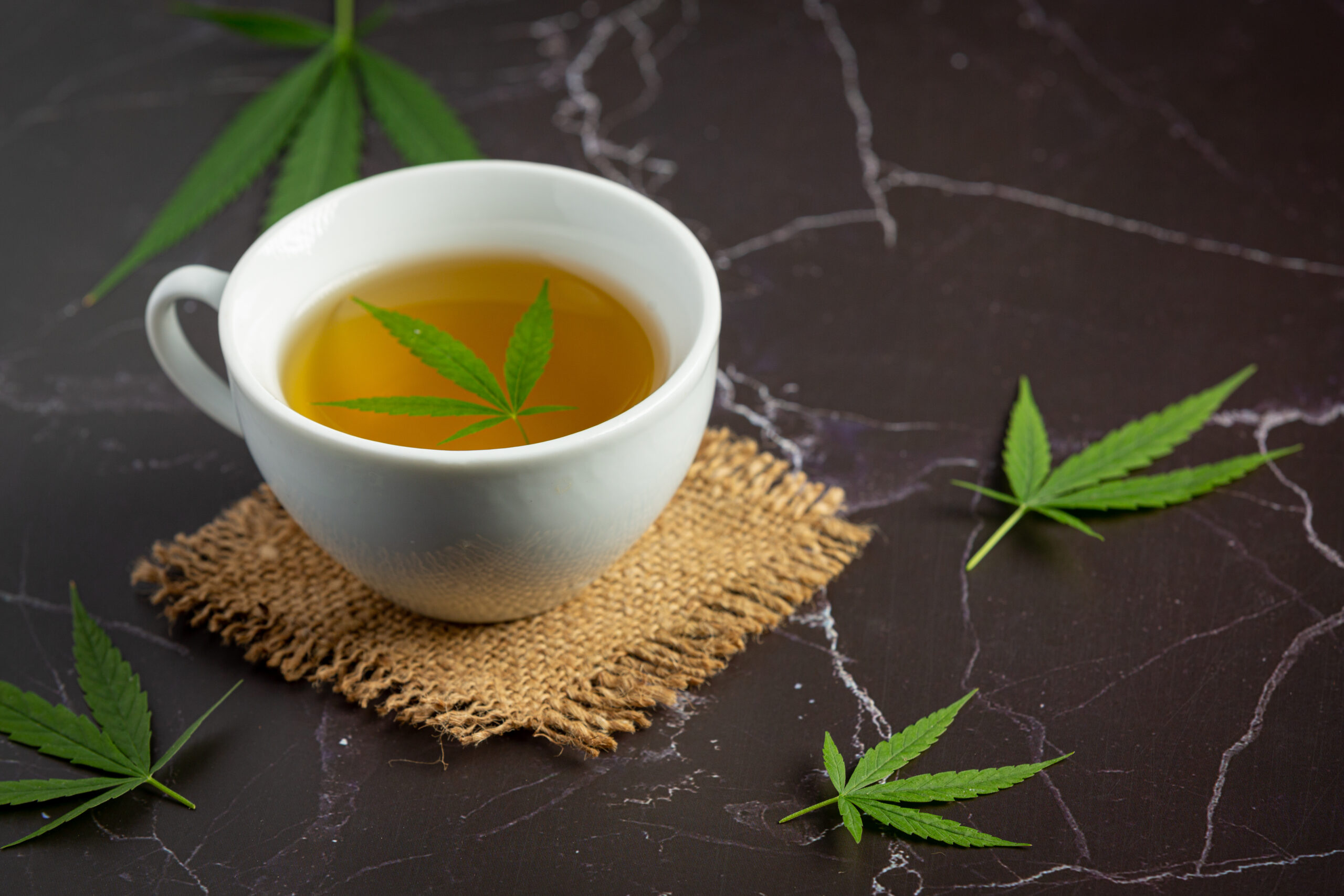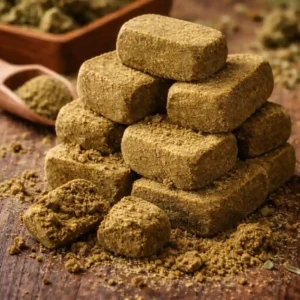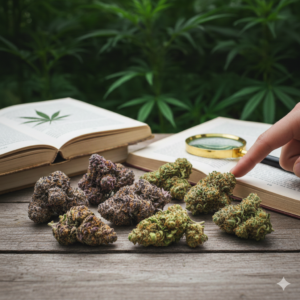Marijuana Tea: Benefits, Effects, Preparation, and a Complete Guide to Responsible Consumption
Marijuana tea is emerging as one of the healthiest and most discreet ways to consume cannabis, both for recreational and medicinal purposes. This ancestral beverage, with deep roots in traditional cultures like India (bhang), is gaining popularity among new users looking for an alternative to smoking or vaping, without losing the therapeutic benefits of cannabis.
In this article, we’ll thoroughly explore everything you need to know about marijuana tea: what it is, how to prepare it, its effects, benefits, comparisons with other consumption methods, and answers to frequently asked questions. We’ll also discuss price, medical uses, and potential long-term effects. This content has been optimized to rank for the main keyword marijuana tea, as well as the most frequently searched related terms.
What is Marijuana Tea?
Marijuana tea is an infusion made from parts of the cannabis plant: flowers, leaves, stems, and even roots. Although it can be prepared with just hot water, the true effectiveness of cannabis tea comes from combining it with fats, as cannabinoids like THC and CBD are fat-soluble. This means that to release their psychoactive and medicinal effects, they must be dissolved in a fat-based liquid like whole milk, butter, or coconut oil.
Unlike smoked or vaporized consumption, marijuana tea has a slower and more prolonged absorption. This makes it ideal for those seeking a sustained therapeutic effect that is gentler on the respiratory system.
Cultural History and Use
The use of cannabis infusions dates back centuries. In India, bhang has been consumed during religious festivals like Holi. In other African and Asian cultures, cannabis infusions were used for healing or ritual purposes. Today, marijuana tea is gaining ground again as a healthier alternative, especially among medicinal cannabis users.
What Are the Benefits of Marijuana Tea?
The benefits of marijuana tea stem from the active compounds in cannabis, mainly THC (tetrahydrocannabinol), CBD (cannabidiol), and other cannabinoids like CBG and CBN. Combined with flavonoids and terpenes, these components offer a broad spectrum of therapeutic effects.
Relief from Chronic Pain
Marijuana tea is commonly used to manage pain. Patients with arthritis, fibromyalgia, multiple sclerosis, or chronic muscle pain report noticeable relief with regular cannabis tea intake.Reduced Anxiety and Stress
CBD, especially from non-psychoactive strains, acts as a natural anxiolytic. The tea can promote calm and well-being without the side effects of chemical anxiolytics.Improved Sleep
A cup of marijuana tea before bed may combat insomnia, improve deep sleep quality, and reduce nighttime awakenings.Anti-inflammatory Properties
Both THC and CBD possess anti-inflammatory qualities, making the tea useful for conditions like Crohn’s disease, ulcerative colitis, or skin issues.Appetite Stimulation and Digestive Aid
Cannabis tea can boost appetite, especially in cancer or HIV patients, and soothe nausea, vomiting, or mild stomach pain.Reduced Lung Impact
Unlike smoking, tea doesn’t affect the lungs or respiratory system, making it ideal for individuals with asthma or other lung conditions.
For more information on cannabis consumption and its benefits, visit: 8 Surprising Benefits of Drinking Cannabis Tea | AllBud
What Happens If I Make Tea with Marijuana?
Preparing marijuana tea isn’t as simple as boiling leaves. For THC and other cannabinoids to be effective, they need to undergo decarboxylation (activated by dry heat) and be combined with a fat base for proper absorption.
If you make tea with just hot water, effects will be minimal. But if prepared with whole milk and pre-decarboxylated cannabis, you may experience effects similar to edibles: delayed but deep and long-lasting.
Common Effects:
Muscle relaxation
Euphoria or well-being
Drowsiness (at higher doses)
Mild sensory alteration
Pain relief
What If I Drink Tea Made with Cannabis Leaves?
Marijuana leaves contain less THC than the flowers but still retain beneficial compounds like flavonoids, terpenes, and small amounts of CBD. A tea made from leaves alone will have little to no psychoactive effect, but may offer:
Antioxidant properties
Digestive aid
Mild pain relief
A sense of wellness
This type of tea is ideal for beginners, older adults, or those seeking to incorporate cannabis into their daily routine without altering their mental state.
Which Is Better: Smoking or Drinking Marijuana Tea?
The choice between smoking and tea depends on your needs and lifestyle. Here’s a comparison:
| Feature | Smoking Marijuana | Drinking Marijuana Tea |
|---|---|---|
| Onset Time | Immediate (1–5 min) | Slow (30–90 min) |
| Duration | 2–3 hours | 4–8 hours |
| Dose Control | Easier | Requires trial and error |
| Lung Impact | Present (combustion) | None |
| Discretion | Low (strong odor) | High (like normal tea) |
| Medicinal Use | Less recommended | Ideal for long treatments |
In summary, if health, discretion, or prolonged therapeutic use is your priority, marijuana tea is clearly the better option.
How to Prepare Marijuana Tea
There are many ways to prepare marijuana tea, but the key is to activate the cannabinoids through decarboxylation and use a fat base.
Basic Ingredients:
0.5–1g of cannabis (flowers or trimmings)
250 ml of whole milk, fatty plant milk, or water with butter/coconut oil
Honey or sugar (optional)
Cinnamon, ginger, mint (optional)
Instructions:
Decarboxylate the cannabis: Grind the plant material and bake at 110–120°C (230–250°F) for 30–40 minutes.
Heat the liquid base: Warm the milk or fat-infused water gently.
Add cannabis and simmer: Let it cook on low heat for 20–30 minutes.
Strain and serve hot: Add sweeteners or spices to taste.
This method ensures THC and CBD activation, maximizing the tea’s therapeutic effects.
Medical Marijuana: Tea as a Therapeutic Method — In Depth
Medical cannabis is globally recognized as a natural alternative for treating various conditions, especially those affecting the quality of life in chronic patients. In this context, marijuana tea stands out as one of the friendliest and safest ways to benefit from the plant’s properties.
History and Tradition of Cannabis Tea
While medicinal cannabis is trending today, its therapeutic use spans millennia. In India, bhang — a drink made with cannabis, milk, and spices — has been used for spiritual and medicinal purposes. Across Africa, Asia, and the Americas, communities have used cannabis infusions to relieve pain, stimulate appetite, or improve sleep.
These traditions not only confirm cannabis’s ancestral effectiveness, but also show how tea as a liquid form makes consumption and absorption easier, especially for patients who cannot smoke or vape.
Why Choose Tea Over Other Medical Cannabis Forms?
Gradual Absorption: Oral tea consumption allows cannabinoids to enter the body more slowly and steadily, avoiding the abrupt peaks that can cause anxiety.
Long-Lasting Effect: Though slower to kick in, effects may last 4 to 8 hours — ideal for chronic pain or sleep disorders.
No Lung Damage: Unlike smoking, tea involves no combustion or toxin inhalation.
Easy Dosing: Homemade preparation allows you to adjust the cannabis quantity safely.
Natural Supplement: It can be combined with other medicinal herbs or adaptogens for a holistic treatment.
Diseases and Symptoms Treated with Marijuana Tea
Cancer: Alleviates chemotherapy-induced nausea, improves appetite, and reduces pain.
Epilepsy: High-CBD strains in tea can lower seizure frequency in drug-resistant epilepsy.
Chronic Pain: Offers sustained relief in fibromyalgia, arthritis, migraines, and more.
Sleep Disorders: Encourages restful sleep in those with insomnia or sleep apnea.
Anxiety and Depression: Cannabis compounds — especially CBD — act as natural mood stabilizers.
How to Prepare Medicinal Marijuana Tea for Maximum Effect
To make an effective medicinal tea, decarboxylate the cannabis and include a fat source, since cannabinoids are fat-soluble and water alone won’t extract them efficiently.
Basic Recipe:
1g decarboxylated cannabis flower
1 cup whole milk or fatty plant milk
1 cup water
Optional: cinnamon, ginger, honey
Simmer the milk and water mixture, add cannabis, and cook for 20–30 minutes. Strain and enjoy.
Marijuana Tea: Side Effects and Extended Precautions
Although marijuana tea is generally safe, it’s important to understand its potential side effects and practice caution.
Common Side Effects:
Drowsiness and sedation
Dry mouth and red eyes
Dizziness or disorientation
Anxiety or paranoia (especially with high doses)
Increased heart rate
Drug Interactions:
Cannabinoids can interact with anticoagulants, antidepressants, and some sedatives. Consult your doctor before mixing tea with medication.
Safety Tips:
Start with small doses and wait 1–2 hours to feel effects.
Avoid combining with alcohol or other drugs.
Do not use during pregnancy or breastfeeding without medical advice.
Be cautious if you have heart, liver, or psychiatric conditions.
Marijuana Tea Price: Complete Overview
The cost of marijuana tea varies by legality, cannabis quality, and whether it’s store-bought or homemade.
Commercial Options:
CBD tea infusions: 10–20 bags for €5–€20 (non-psychoactive)
Premium THC blends: €20–€50 in legal markets
Homemade Tea:
Medical cannabis cost per gram: €6–€15
Makes 3–5 cups per gram → ~€2–€5 per cup
Natural flavor enhancers (honey, spices) may raise the cost slightly
Final Tip:
Always buy legal, certified cannabis to ensure safety and quality. Illegal products may pose serious health risks.
Find more articles like this and exclusive cannabis tips at Weedestiny .




